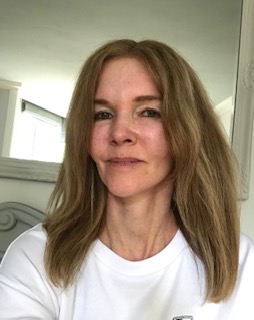“The most common way people give up their power is by thinking they don’t have any.” Alice Walker
Every facet of domestic abuse is motivated by the desire to gain and maintain power and control over another, often an intimate partner. Abusive men operate in both covert and overt ways to rule, check, limit, curb, regulate, restrain, direct, command, force and dominate their intimate partners. In a healthy relationship, partners generally have more or less equal amounts of control. In an abusive relationship, the abuser seeks to remove control from his intimate partner; leaving her weak and easier to manipulate, dominate and abuse.
When we lose our control, with it goes our confidence, self-esteem, happiness, motivation, sense of purpose, autonomy, enthusiasm and wellbeing. Without a sense of control over our lives, we will risk feeling disorientated and directionless even long after the relationship has ended. It is imperative to healthy recovery, that we learn how to take back control and re-establish our sense of direction and purpose.
It can be confusing to know where to start in the process of regaining control. First we need to work out what potential control we do have. I use the term potential because there is a difference between having control available to us and feeling able to utilise this control. But it’s vital we establish what we can potentially control. Many women whose control has been taken away from them in abusive relationships won’t acknowledge they have the potential to control various aspects of their lives. If they don’t acknowledge they have the potential to control various things, they almost invariably won’t be able to. To achieve something, in this case control, we must believe this achievement is possible. A very useful tool that can be used to establish the potential control we have over various aspects of our lives is the ‘sphere of influence’.
Firstly, it’s important that we identify what we can control, or, have the potential to control once we feel able to. When recovering from domestic abuse, we will often imagine that the perpetrator controls our emotions and feelings. He may have been so abusive that we are left with low moods, anxiety and trauma. However if we don’t acknowledge that we have any element of control over how we now feel, we won’t believe there is potential to recover, and consequently recovery won’t happen. We will be left feeling helpless and at the mercy of others. We need to believe we have at least the potential to control how we feel. If we don’t, we risk remaining in a rut and forever being the victim of someone else’s abuse of us. I very much know it might be difficult to take control of these areas, but it’s certainly possible and it’s important that we acknowledge that it is possible.
We may identify the following in this inner circle as areas that we have the potential to control:
Our thoughts
Our actions
What we eat
Where we focus our attention
What we say to others
Our mood
How we think about past events
How we plan our future
How much value we place on ourselves
Our self-care routine
Next, we might consider areas in our life that we may have some influence over. So in this area, the sphere, we have no direct control, however a change in our behaviour may influence a change in another’s behaviour. How we respond to a bullying former partner who is trying to control us post-separation, might be an example here. Whereas we can’t control how he behaves, we may be able to influence a change in his behaviour. If we fail to respond to his attempts to intimidate us, show him no emotion and operate like a ‘grey rock’, he may in time give up trying to intimidate us as he’s not getting ‘fed’ by any meaningful reaction to his abuse. In another situation, we might report his harassment to the police – this action of ours may exert some influence over his subsequent behaviour – following a visit from the police, he might stop harassing us. We may also influence our children’s behaviour by rewarding positive behaviour and ignoring the tantrums.
When seeking to influence the behaviour of another, trial and error might be necessary. We can’t always predict how another might respond to our behaviour and some tactics that we try might be counterproductive where we get the opposite response to the one we were hoping for. Standing up to a bully might work in some cases, but in others it might threaten him and encourage further aggression in him. Behaving like an unemotional ‘grey rock’ may encourage an abusive partner to stop bothering trying to abuse us, however for many abusive men this simply won’t work.
Lastly, we might focus our attention on establishing what we have no control or influence over. This task is equally as important as the previous two. Much time is wasted worrying about things we can’t control or influence. Time is also wasted trying to control what we can’t possibly control. The goal here is to let go of what we have no control or influence over. Other people and their behaviours are often in this category. As mentioned, there is the potential to sometimes influence the behaviour of others, but many times there is nothing we can do, we often have no control or influence over that other person, and we need to let go of trying.
“Incredible change happens in your life when you decide to take control of what you do have power over instead of craving control over what you don’t.” Steve Maraboli
It’s not just people that we waste time trying to control. We commonly worry about things that have gone wrong in the past that we can do little about, and things that might go wrong in the future. We entertain hypothetical fears and worries about things we can’t control and that might never happen anyway. Studies suggest that the vast majority of our hypothetical worries won’t happen. The energy we spend with our hypothetical worries takes time away from focusing on real worries that we may be able to do something about.
It’s so important for good recovery from domestic abuse, that we take back control of our feelings, emotions, moods, decisions, choices, behaviours, health and futures. By accepting control of these things, we have real potential to recover from abuse and to drive our own destiny towards a happier and more fulfilling future.
“It’s our choices that show what we truly are, far more than our abilities.” JK Rowling
Mary’s Story
“I understand now that that I was stuck in victim mode and that there’s a big gulf between being a victim of domestic abuse and actually surviving it. Being a survivor didn’t happen automatically for me, it took effort and hard work, and it took a while before I even decided I wanted to survive.
“It’s difficult for me to admit this but the first hurdle I had to overcome was my own self-pity. Self-pity was holding me back and keeping me in victim mode. The feeling was comforting, familiar and felt safe. I sought out others who would reinforce my victimhood, my mother was the main culprit, she was prepared to accept every excuse I offered to justify my inactivity. Giving up the self-pity was difficult because being a victim had become my identity. It provided me with a whole host of excuses. I didn’t push myself at work because I was already too stressed, I rarely went out socially, claiming it would scare me and I dodged any potential challenge that came along, claiming to be struggling already. I was struggling though, it was genuine, but I didn’t realise that there was any other way of operating after my experiences. Although I stayed well within my comfort zone, I wasn’t happy, I didn’t believe I had a choice. He had abused me, he had made me feel like this, I was a victim, his victim, and I didn’t believe I had any option but to feel this way.
“As part of the package of my victimhood, I honestly believed that my low moods, anxiety and general apathy were caused and still controlled by him. I suffered low self-esteem and believed he had caused this by abusing me and making me feel worthless, and there was nothing I was able to do to improve the situation. I did not realise that I had any control over my mood. I didn’t acknowledge that I could influence my own self-esteem.”
“And then something shook me, knocked off my blinkers and forced me to re-think. My 7-year-old daughter had asked me why I was so boring compared to her friends’ mums. She asked why I never wanted to do anything or go anywhere. I was horrified by the harsh truth of her words. I also felt horribly guilty and very aware that I no longer wanted to live this ‘small’ life.”
“That was two years ago, I’ve put in a lot of hard work, and it’s not always been easy but I now feel that I own my survivor status. Realising that I had the potential to control so much, allowed me to take back control of my life and drive my destiny. Accepting I had choices and could choose a more positive way of operating has been very freeing. It’s not always wonderful, I have days when I feel low and find myself dwelling on the past, but I largely feel that I have my life back. And importantly I’m more present for my daughter because of it.”
“You can’t just hope for happy endings. You have to believe in them. Then do the work, take the risks.” Nora Roberts
Sandra Reddish
Published 30 January 2023

About the author
Sandra Reddish
Sandra Reddish
Supporting and advocating for domestic abuse survivors is my life’s purpose. I am endlessly inspired by the strength, perseverance and hope so many women show in the face of often terrible circumstances. I will continue to use my expertise to do everything I can to empower women to survive and thrive following domestic abuse.
